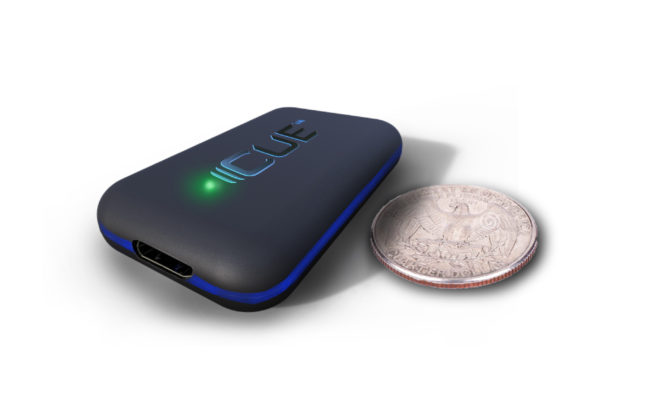
Existing concussion detection technology is focused on helmeted sports like football and hockey, which uses head impact sensors to monitor an athlete’s movements. These sensors, usually mounted on a helmet, send the collected data to a computer platform which parses this information and assess the probability of a concussion. These sensors work well for helmeted sports, but they fall short when it comes to non-helmeted sports like soccer and rugby. This shortfall is a significant issue as recent studies suggest such sports are equally as dangerous as their helmeted counterparts. To address this gap, Athlete Intelligence turned its focus on developing the Cue Sports Sensor.
The new Cue Sport Sensor draws many of its features from the helmet-mounted sensors, but it improves upon that technology. The Cue Sports Sensor is a small, lightweight plastic sensor that can be slid easily into a hat, headband, or skullcap. Because it fits on everyday clothing, the sensor can be used to monitor a wide variety of sports. Once activated, the sensor measures both head impacts and movement metrics such as speed, distance, body angle, and movement in space. The device stores this information and then transmits it wirelessly via Bluetooth or radio frequency in real time to a mobile device or tablet. The software takes this data and analyzes it both for head injury and performance, providing insight into the how the athlete is responding while on the field or the court. This analysis can be done on an individual basis or for an entire team.
i1 Biometrics recently rebranded and is now known as Athlete Intelligence, a name that reflects the company’s commitment to developing a line of sports-related technology. The company plans to begin shipping its new Cue Sport Sensor later this spring.



